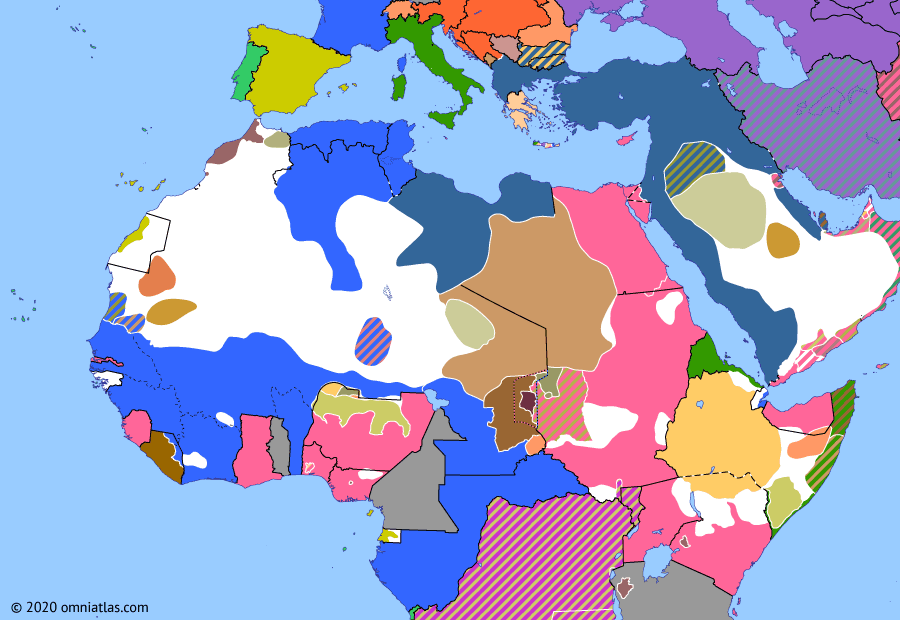Northern Africa 1903: Pacification of Northern Nigeria
5 February 1903
5 Feb 1903
Pacification of Northern Nigeria
7 Aug 1897 Kitchener in Sudan
2 Sep 1898 Battle of Omdurman
21 Mar 1899 Anglo-French Convention on Sudan
22 Apr 1900 Battle of Kousséri
7 May 1902 Cottenest Expedition
5 Feb 1903 Pacification of Northern Nigeria
25 Oct 1903 Somaliland Campaign
31 Mar 1905 Tangier Crisis
12 Feb 1906 Conquest of the Sahara
16 May 1908 Consolidation of Ethiopia
15 Jan 1910 French Equatorial Africa
1 Jul 1911 Agadir Crisis
10 Oct 1911 Italo-Turkish War
30 Mar 1912 Treaty of Fez
14 Mar 1913 French invasion of the Tibesti
1 Jan 1914 Amalgamation of Nigeria
The 1899 Anglo-French agreement assigned Northern Nigeria to the British, even though the region was almost entirely dominated by independent African states. Although the British managed to persuade many of these states to accept protection, some, including the great Sokoto Caliphate, resisted. In early 1903 the British invaded Sokoto, cementing their control in Northern Nigeria.
